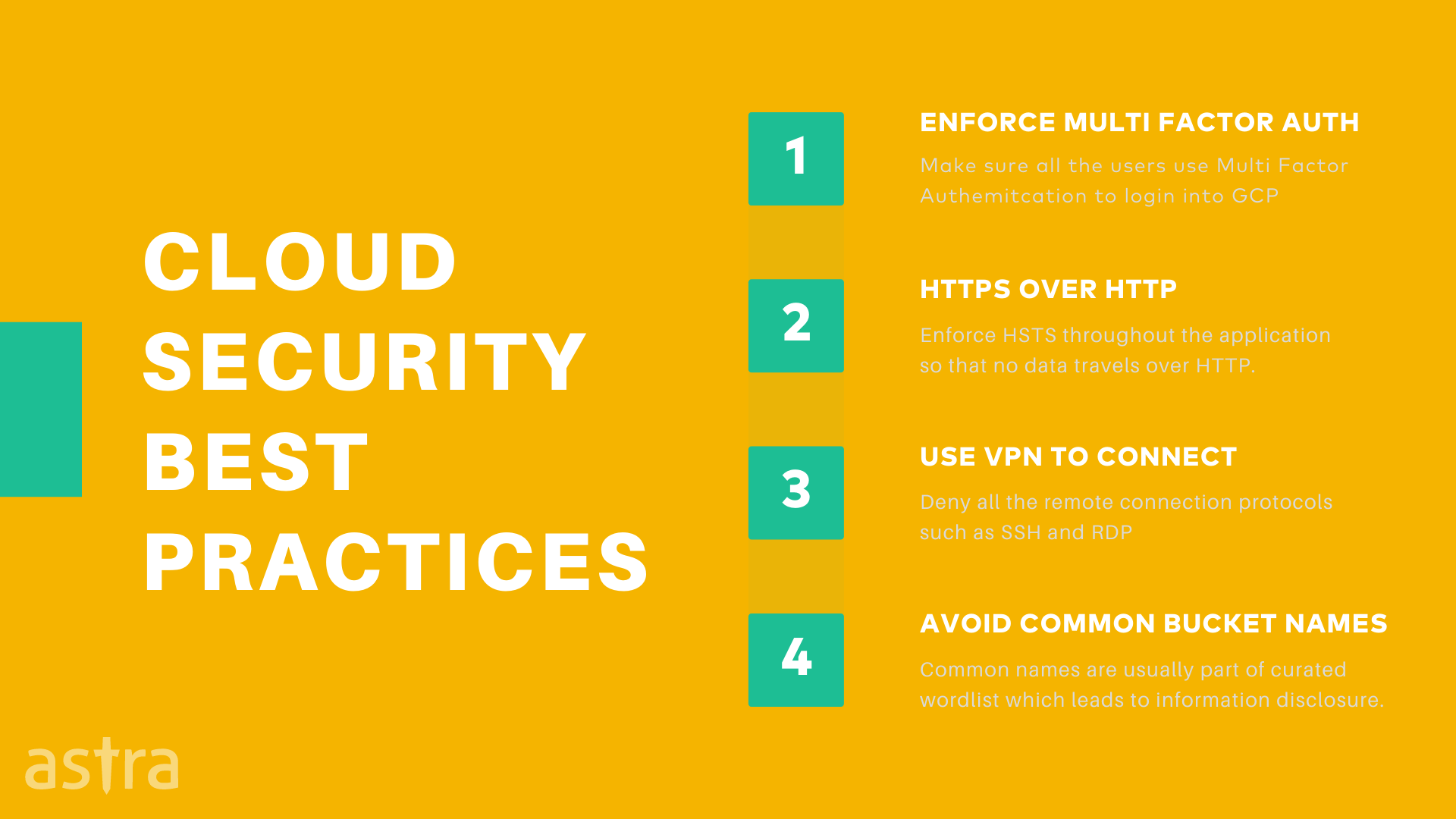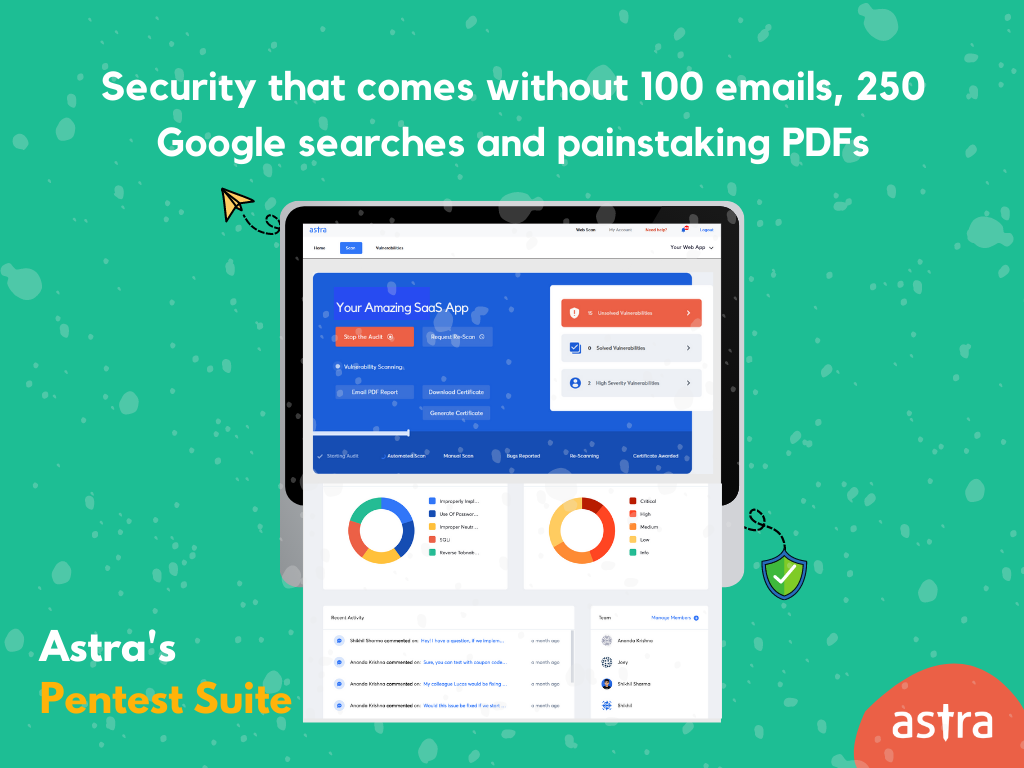Cloud computing has unlocked a whole new level of scalability and agility for businesses. Despite the cloud’s ability to run your business, there are still many security risks to worry about. The best way to get ahead of cloud security threats is to integrate cloud security testing into your cloud security strategy.
This blog is an in-depth guide to cloud security testing. We will learn about various cloud security testing techniques and examine some of the top cloud penetration testing tools that you can choose for cloud security testing.
What is Cloud Security Testing?
Cloud Security Testing is a type of security testing method in which cloud infrastructure is tested for security risks and loopholes that hackers can exploit. Cloud security testing is mainly performed to ensure that cloud infrastructure can protect the confidential information of an organization.
This type of testing examines a cloud infrastructure provider’s security policies, controls, and procedures and then attempts to find vulnerabilities that could lead to data breaches or security issues. Cloud-based application security testing is often performed by third-party auditors working with a cloud infrastructure provider, but the cloud infrastructure provider itself can also perform it.
Cloud security testing is carried out using a variety of manual and automated testing methodologies. The data generated by this testing type can be used as input for an audit or review. Not only this, but Cloud security testing can also provide in-depth analysis and the risk posture of the security risks of cloud infrastructure.
Why is Cloud Security Testing important?
Cloud security testing is one of the most important things you need to ensure your cloud infrastructure is safe from hackers. As the cloud computing market is growing rapidly, there is a growing need for application security solutions for the cloud to ensure that businesses are protected from cyber-attacks.
Cloud security testing helps to identify potential security vulnerabilities due to which an organization can suffer from massive data theft or service disruption. This forms an integral part of a cloud compliance checklist as a major requirement for most compliances is the detection and timely remediation of vulnerabilities.
Cloud security testing is useful for both organizations and cloud security auditors. Companies can use cloud security testing to identify vulnerabilities that hackers can exploit to compromise cloud infrastructure. Cloud security auditors can use cloud security testing reports to validate the cloud infrastructure security posture.
Also Read: Cloud Penetration Testing: A Complete Guide | Security Testing Software – 5 Things to Understand Before You Choose One
3 Different Approaches to perform Cloud Security Testing
Cloud security testing is performed in three different approaches:
- Black Box: No external information about the cloud infrastructure
- Gray Box: Limited information about the cloud infrastructure
- White Box: Complete information about the cloud infrastructure
The White Box approach may sound the most secure, but this is not always the case. It’s the opposite. This is because the White Box testing approach has the advantage of letting admins and security personnel know more about the cloud environment. This means they will know more about the cloud infrastructure and the cloud environment, which does not give hacker-style thinking to the security tester.
In contrast, the Black Box approach is the opposite of this. This approach doesn’t let information about the cloud environment be known to anyone. This means that the security team has to compromise their cloud security thinking like a Hacker.
The Gray Box approach is almost like the White Box approach. The only difference is that it tends to be a combination of Black and White Box approaches. This means that some information about the cloud environment is known, but not everything. With this approach, you can have the best of both worlds.
Cloud Security Testing 101
1. Improper Identity and Access Management
Improper Identity and Access Management in Cloud is the practice of failing to consider the security of access to cloud resources when making cloud service choices. Poor access management can lead to various security issues, including data loss and theft, security breaches, and the loss of business-critical data and information.
Poor access management is the lack of oversight on the modifications made to an account, including changes made by system administrators.
For example: If a user is granted access to a resource and then leaves the company or is terminated, that access should be removed immediately.
2. Misconfigured Storage Buckets
Data stored in the cloud storage buckets might be vulnerable. If you have misconfigured your storage bucket, the data stored in it could be accessible via a simple search query. There are many cloud providers out there, but each one comes with its own terms of service.
One such term is that most providers allow you to have a publicly accessible bucket. Your bucket can be accessed by anyone with an internet connection and a simple search query. The result is that you or your company may have some very sensitive data exposed and available to anyone who is curious enough to find it.
3. Missing Multi-Factor Authentication
Almost every enterprise-level cloud deployment these days relies on multi-factor authentication (MFA) to ensure that only authorized users can access their cloud resources. MFA is a great way to ensure that even if your cloud infrastructure is compromised, your most sensitive data will be protected.
However, not all organizations are implementing multi-factor authentication correctly. It’s important to know that MFA isn’t a simple one-size-fits-all solution. This can make the process of implementing MFA complicated and open the door for security misconfigurations.

Also Read: 10 Best Cyber Security Audit Companies [Features and Services Explained]
Do Cloud Services Providers allow cloud security testing?
The cloud services providers, such as Amazon Web Services, Google Cloud Platform, and Microsoft Azure, allow their customers to perform testing, but with some limitations. Above all, these services have their own cloud security providers their security teams that perform testing using various methods.
1. AWS – Amazon Web Services
AWS allows testing on the following resources only:
- Amazon EC2 instances, NAT Gateways, and Elastic Load Balancers
- Amazon RDS
- Amazon CloudFront
- Amazon Aurora
- Amazon API Gateways
- AWS Lambda and Lambda Edge functions
- Amazon Lightsail resources
- Amazon Elastic Beanstalk environments
Also Read: Top 5 Software Security Testing Tools in 2022 [Reviewed]
2. GCP – Google Cloud Platform
According to Google:
If you plan to evaluate the security of your Cloud Platform infrastructure with penetration testing, you are not required to contact us. You will have to abide by the Cloud Platform Acceptable Use Policy and Terms of Service and ensure that your tests only affect your projects (and not other customers’ applications).
Also Read– GCP Security
3. Microsoft Azure
According to Microsoft:
As of June 15, 2017, Microsoft no longer requires pre-approval to conduct a penetration test against Azure resources. This process is only related to Microsoft Azure and does not apply to any other Microsoft Cloud Service.
3 Challenges in Cloud Security Testing
With most businesses going for the cloud, it has become the need of the hour to test the cloud infrastructure for security. Cloud security testing is necessary to ensure data security, and there is a need to test cloud-based applications continuously.
Cloud security testing is a big challenge for security professionals. Cloud security testing is difficult as it involves various aspects of cloud infrastructure. It is a big challenge as the cloud is used for various purposes, and it is a complex infrastructure. Below mentioned are a few pointers to understand why security testing in a cloud environment is complex.
1. Lack of Information
The biggest challenge for cloud security testing is the lack of information about the cloud provider infrastructure and cloud access. Cloud providers may not be willing to share the information with the customer. Such information might include security policies, physical locations of the data center, and much more. Without this information, it is difficult for the cloud security testing team to map the cloud provider infrastructure and determine the scope of the security testing.
2. Resource sharing
Resource sharing is a common feature of cloud services and is essential for multi-tenant architecture. However, this commonality can also prove to be a limitation during Cloud security testing. Cloud security testing is a highly challenging task, especially with the rise of IaaS cloud services.
3. Policy restrictions
The policy restrictions of the cloud service provider may limit the scope of security testing. The cloud security testing team may not conduct security testing activities on all the cloud infrastructure components or may not be able to audit the network access controls in place. The different cloud approaches may expose the business to security risks depending on the cloud service providers’ approaches and the overall security of the cloud.
Astra’s Cloud Security Testing Solution
Astra’s Cloud Security Testing Solution is a comprehensive cloud compliance validation program designed to ensure your cloud platform is secure. With the constantly evolving threats, you need to have a complete cloud security solution that can cover all your cloud security needs. We help you meet today’s rigorous cloud compliance standards, protect your data in the cloud, and reduce cloud security risk with a one-stop solution.
Astra understands that your data is the most valuable and sensitive asset you have. It’s why we design our security testing solutions to proactively protect your cloud environment against threats of all kinds, including insider threats while giving you the flexibility to know what’s happening in your environment at all times.
Astra’s Holistic Approach to cloud security testing is designed to help you build and maintain a secure cloud environment throughout the entire lifecycle of your cloud workloads. We help you understand your vulnerabilities, risk exposure, and attack surface and then help you remediate those vulnerabilities and reduce your attack surface. This way, you can be confident about your cloud security posture and be ready when a breach happens.
Learn more about Astra’s Cloud Security Solution

Conclusion
Cloud security testing is a vital part of maintaining a cloud-based business. If you’re considering adopting a cloud-based platform, be sure to research the platforms you’re considering and undergo cloud security testing to ensure that your data is secure. If you’d like to learn more about cloud security testing, don’t hesitate to contact Astra Security. At Astra, we are passionate about cloud security testing, and we can help you get the most out of your cloud.
FAQ’s
What is Security Testing?
Security Testing is a process of identifying and eliminating the weaknesses in the software that can lead to an attack on the infrastructure system of a company.
What is Cloud Security Testing?
Cloud Security Testing is a special type of security testing method in which cloud infrastructure is tested for security risks and loopholes that hackers can exploit.
Do Cloud Services Providers allow cloud security testing?
In a word: Yes! Or, at least most of the time for top cloud service providers. However, there are specific boundaries to what an security tester can play with while the rest remains out of bounds for testing.
















